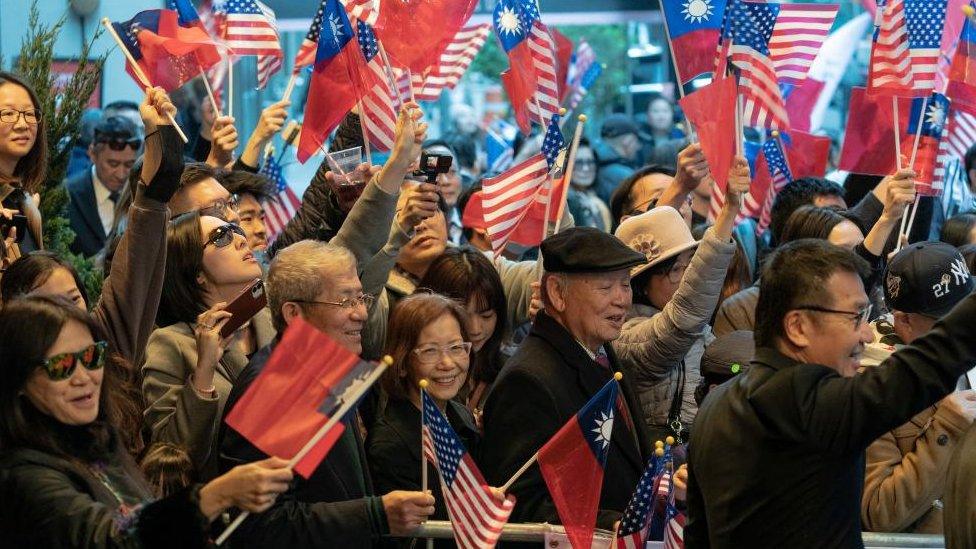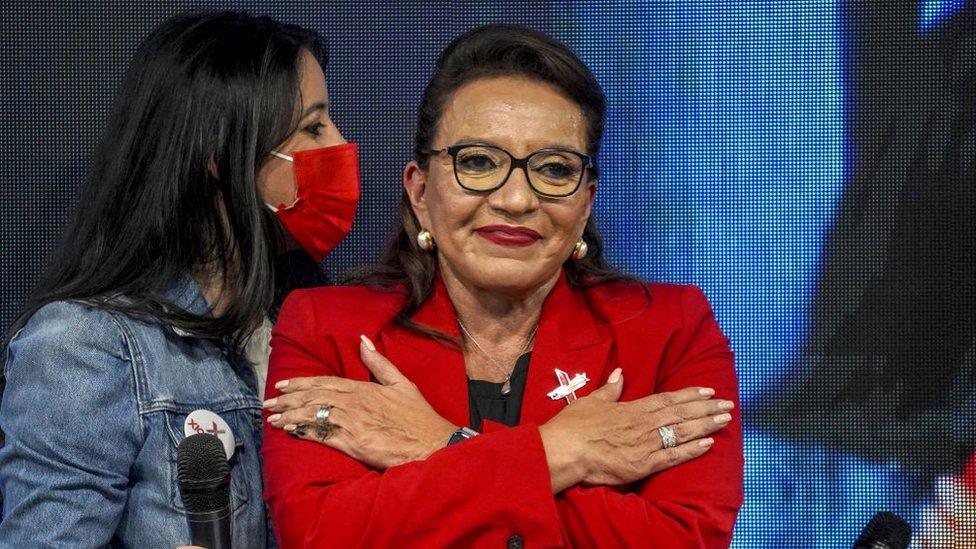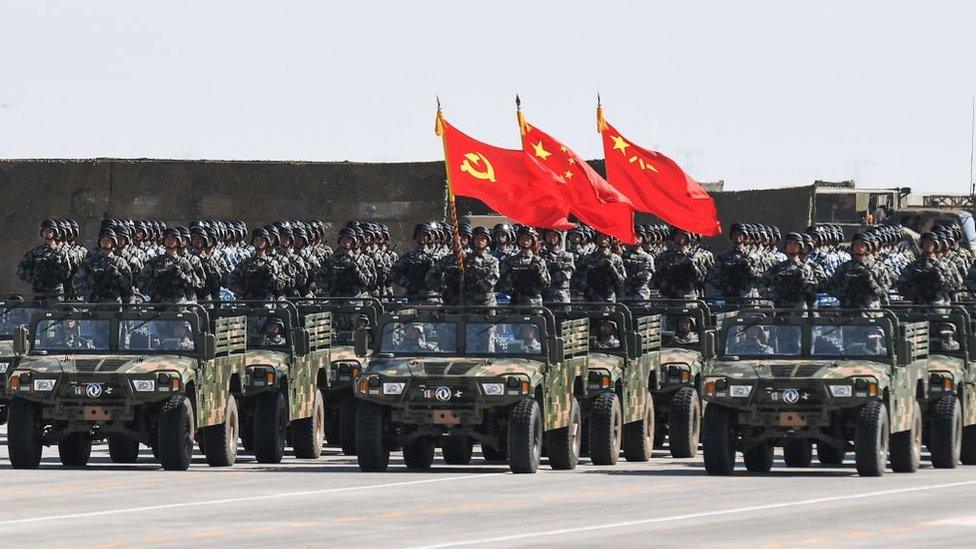Taiwan's Tsai arrives in US to warnings from China of 'serious confrontation'
- Published

Supporters gather while Taiwan’s President Tsai Ing-wen arrives in New York
Taiwan's President Tsai Ing-wen has arrived in New York to criticism from China, which warned the US of serious repercussions.
Ms Tsai is transiting through the US on her way to Central America, but she may meet with US House Speaker Kevin McCarthy on her return leg.
China has condemned any such meeting - and says if it goes ahead, it could lead to a "serious confrontation".
In response, the US has said Beijing should not overreact to Ms Tsai's trip.
The US hopes to see a "normal, uneventful transit", the White House's national security spokesperson John Kirby said on Wednesday, noting that this is Ms Tsai's seventh transit through the US during her time as Taiwan's leader.
"This is a common occurrence...Other presidents of Taiwan have transited the United States. Nothing unusual about this," he said in a press briefing.
This will be the 29th US transit by a sitting president in Taiwan since the first in 1994.
Ms Tsai flew into New York on Wednesday, where she was greeted by competing crowds of protesters and supporters outside her hotel.
She is due to fly to Guatemala and Belize this week, in a visit to shore up alliances in Central America, before returning through Los Angeles where a meeting with the senior US political leader could take place, US outlets have reported.
In response to her arrival in the US, China's senior envoy in Washington accused the US of advocating for Taiwan's independence by allowing Ms Tsai to "make a splash" in their country.
"No matter [whether] it is Taiwan leaders coming to the United States or the US. leaders visiting Taiwan could lead to another serious, serious, serious confrontation in the China-US relationship," said Xu Xueyuan, China's Chargé d'Affaires in a press conference.
By allowing Ms Tsai in the US, Washington "seriously undermines China's sovereignty and territorial integrity," Ms Xu said.
"We urge the US side not to repeat playing with fire on the Taiwan question," she said.
China's Ministry of Foreign Affairs and Taiwan Affairs Office have also strongly condemned the visit, charging that it violates the "One China" principle, whereby China insists Taiwan is an inalienable part of its territory to be reunified one day.
"We firmly oppose this and will definitely take measures to resolutely fight back," Zhu Fenglian, a spokesperson for the Taiwan Affairs Office told reporters on Wednesday.
Ms Tsai is scheduled to return to Taipei on 7 April.
Taiwan considers itself a sovereign state, while China views it as a breakaway province that will eventually be united with the mainland.
Beijing has not ruled out the possible use of force to achieve that goal.
Last year, tensions between China, Taiwan and the US reached a high - after Mr McCarthy's predecessor, Nancy Pelosi, flew to Taipei to meet Ms Tsai.
Beijing responded to Ms Pelosi's visit with a week of massive military drills in the waters around Taiwan.
Ms Tsai's visit to Central America comes after Honduras, a former ally, last week switched sides to establish diplomatic ties with Beijing. This has left Taiwan with the recognition of just 13 governments around the world.

China and Taiwan: The basics
Why do China and Taiwan have poor relations? China sees the self-ruled island as a part of its territory and insists it should be unified with the mainland, by force if necessary
How is Taiwan governed? The island has its own constitution, democratically elected leaders, and about 300,000 active troops in its armed forces
Who recognises Taiwan? Only a few countries recognise Taiwan. Most recognise the Chinese government in Beijing instead. The US has no official ties with Taiwan but does have a law which requires it to provide the island with the means to defend itself

Related topics
- Published15 March 2023

- Published6 March 2023
